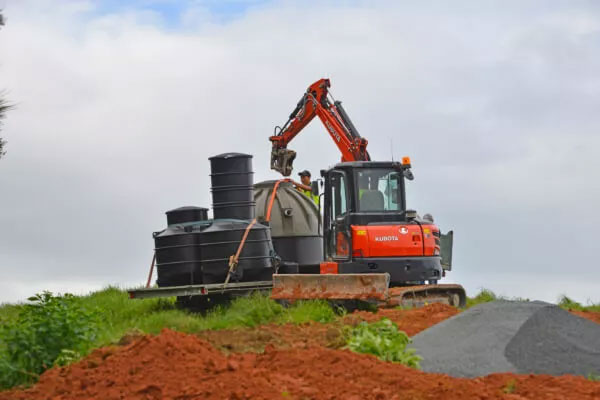A smarter way to reuse what you already have
Ever had a slow-draining sink or a weird smell wafting from your drains? That’s just a tiny glimpse into what happens when wastewater isn’t handled properly. The water you use for showers, laundry, and washing dishes — aka grey water — doesn’t just disappear. It has to go somewhere, and if it’s not managed well, it can cause all sorts of issues.
But here’s the good news: grey water isn’t just waste. With the right system, it can be turned into a valuable resource. Let’s dive into why grey water needs fixing and how to do it right.
The problem with wastewater
For decades, most homes and businesses have been sending all their wastewater — both from toilets (black water) and from sinks, showers, and laundry (grey water) — into one big tank, like a septic system. This mix causes a messy problem:
-
Solids build up – Over time, sludge and scum accumulate, making it harder for the system to filter clean water back into the ground.
-
Bad smells – When too much waste sits too long, it starts to stink.
-
Overflows and failures – When septic systems can’t keep up, they clog up, flood, and create health hazards.
NaturalFlow uses a better way. By treating black and grey water separately, you can make the whole process cleaner, more efficient, and better for the environment.
What is greywater?
Grey water comes from non-toilet sources—your shower, sinks, dishwasher, and laundry. Since it’s not mixed with toilet waste, it has fewer solids and is easier to treat. Instead of sending it straight to a septic system, why not put it to good use?
People all over New Zealand are already using grey water for:
- Watering gardens and lawns
- Irrigating orchards and landscaping
- Reducing their overall water waste
With the right treatment system, you can safely reuse grey water without the usual headaches of a septic tank.
How NaturalFlow’s grey water treatment systems work
Traditional septic tanks dump everything into one big holding tank, leading to sludge buildup, blockages, and odours. NaturalFlow does things differently:
-
Separate at the source – Grey water and black water are kept apart from the start.
-
Smart filtering – Grey water goes through a natural filtration process to remove scum and solids.
-
Eco-friendly disposal – Once treated, the water is ready to be used for irrigation or safely reintegrated into the environment.
Meanwhile, black water goes through a different system (the Wormorator) that mimics nature’s way of breaking down waste. By keeping these two types of wastewater separate, everything runs more smoothly.

The do's and dont's with grey water
What you should do
Use it quickly – The sooner grey water is used, the safer and cleaner it is.
Irrigate your garden – Treated grey water is great for plants and landscaping.
What to avoid
Drinking it – No matter how well it’s treated, grey water is not for drinking.
Letting it sit – Stagnant grey water starts to smell and breed bacteria.
Dumping it in rivers or lakes – Even treated grey water can harm natural waterways.
The bottom line
Grey water doesn’t have to be a waste problem — it can be a smart, sustainable solution. With the right treatment system, you can reduce waste, protect your septic system, and even keep your garden green without using extra fresh water.
Looking to make the switch? Get in touch with the team today.







